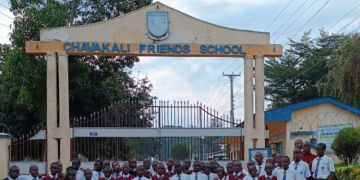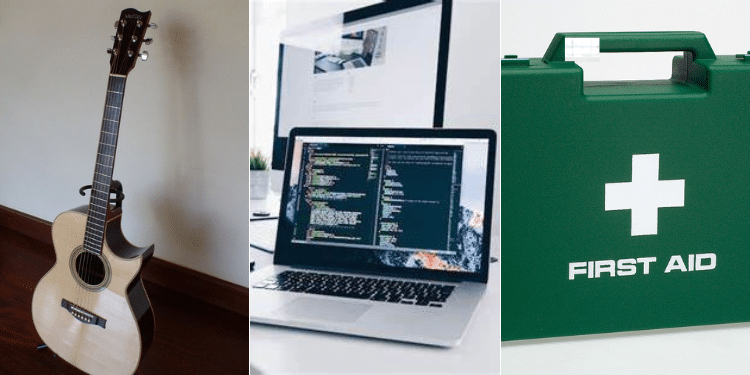Every time schools close for the holidays, parents and guardians find themselves seeking ways to keep their children engaged and productive.
Primary and Secondary schools will close from April 5th for the first term holidays in the 2024 academic calendar.
The holiday will end on April 29 when learning institutions reopen for the second term, meaning children will have three weeks out of school.
During this period, relaxation and play are essential components but incorporating short courses into the mix would help develop new skills, interests, and personal growth.
Here are some short courses that children can explore during their time away from school in line with the Kenyan curriculum and job market.

First Aid
Basic first aid skills are key for handling emergencies and potentially life-saving situations.
First aid courses for children cover topics such as Cardiopulmonary resuscitation (CPR), wound care, choking relief, and emergency response protocols.
This course promotes safety, resilience, and community well-being by empowering children with the knowledge and confidence to assist others in times of need.
Communication Skills
Effective communication is a cornerstone of success in all aspects of life.
Communication skills courses focus on verbal and written communication, active listening, public speaking, and interpersonal skills.
Cultivating strong communication skills empowers children to express themselves articulately, build positive relationships, and navigate social interactions with confidence and empathy.
Also Read: Questions and Answers on KUCCPS First Revision of Courses
Music Classes
Music is not only a pastime activity but also a valuable skill that can enhance mental development and creativity.
Children can explore various aspects of music, including singing, playing musical instruments, and music theory.
Enrolling in music classes can introduce them to different genres, rhythms, and techniques, nurturing a lifelong appreciation for music.
Basic Computer Packages
With the digital era, proficiency in computer literacy is indispensable.
Basic computer packages courses cover fundamental skills such as word processing, spreadsheet management, and presentation software.
As such, equipping children with these skills early on enhances their academic performance and prepares them for future educational and professional endeavors.

Coding Courses
Coding skills are equally becoming increasingly important in today’s digital age.
Introducing children to coding at a young age can lay the foundation for future success in technology-related fields.
Through coding classes, children can learn programming languages, develop problem-solving abilities, and unleash their creativity by designing their own projects and applications.
Arts and Crafts
Encouraging children to explore their artistic talents through arts and crafts classes can unleash their creativity and imagination.
From drawing and painting to sculpting and crafting, there are endless possibilities for self-expression and learning.
These activities not only stimulate fine motor skills but also nurture problem-solving abilities and boost self-esteem.
Language Courses
Learning a new language opens doors to new cultures, perspectives, and opportunities.
Enrolling children in language courses, such as German, French, Italy or even the local dialects can broaden their horizons and enhance their communication skills.
Additionally, bilingualism has cognitive benefits, including improved memory, multitasking, and decision-making skills.
Also Read: Govt Lists Colleges & Universities Approved to Offer Food & Nutrition Courses
Environmental Education
Teaching children about environmental conservation and sustainability is crucial for building a generation of responsible global citizens.
Environmental education courses can cover topics such as biodiversity, climate change, waste management, and renewable energy.
Through hands-on activities and outdoor experiences, children can develop a deeper appreciation for nature and learn how to protect the planet for future generations.
Cooking Courses
Culinary skills are not only practical but also enriching on a personal level. Cooking courses for children introduce them to the basics of food preparation, kitchen safety, nutrition, and meal planning.
From mastering simple recipes to exploring how to prepare different dishes, children can develop a lifelong appreciation for healthy eating habits and culinary creativity.

Style Fashion and Beauty
Style, fashion, and beauty courses offer children a platform for self-expression and creativity.
These courses explore elements such as fashion design, styling techniques, skincare, makeup application, and personal grooming.
By cultivating an understanding of aesthetics and self-care, children can develop confidence, individuality, and a sense of personal style.
Technology & Social Media Gadgets
The world is increasingly becoming technology and social media driven and familiarity with gadgets and devices is essential.
Technology courses introduce children to various digital tools, devices, and gadgets, from smartphones and tablets to drones and virtual reality headsets.
Through hands-on exploration and experimentation, children can develop proficiency in using technology responsibly and creatively.
Further, social media literacy is also crucial for navigating the digital landscape safely and responsibly.
Social media courses for children cover topics such as online etiquette, privacy settings, digital footprint management, and critical thinking skills.
By promoting digital citizenship and responsible online behavior, these courses empower children to harness the potential of social media while mitigating risks and challenges.
Sports
Physical activity is crucial for children’s health and well-being.
Engaging in sports not only promotes physical fitness but also instills important values such as teamwork, discipline, and resilience.
Whether it’s football, basketball, athletics, or martial arts, participating in sports classes can help children develop motor skills, coordination, and confidence while having fun and making new friends.
By incorporating these additional short courses into children’s schedules during school breaks, parents and guardians can provide them with a comprehensive and well-rounded educational experience.











































































